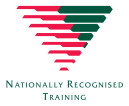Diploma of Business (Procurement)
BSB50120
BSB50120 - Diploma of Business (Procurement)
The Diploma of Business (Procurement) is designed for people who are working and leading a small team. Completing the Diploma of Business (Procurement) will give you the skills and tools required to work effectively as a team leader such as collaborating with others to meet project deadlines and budgets, plan, design apply and evaluate solutions to handle unpredictable problems, as well as equipping you with the fundamentals of Leadership and Management to confidently lead your team.
What You'll Learn in the Diploma of Business (Procurement)
By completing the Diploma of Business (Procurement), you will learn how people work and what motivates them, as well as how organisations operate. You will study financial management including planning, implementing and managing budgets. Together we will analyse business strategies and you will learn how to effectively manage and allocate resources (human and equipment) as well as how to develop and implement business policies for sustainability. This course will give you practical skills in managing people, setting budgets, persuasive communication and creating a culture of high-performance.
By the end of your diploma, you will have both developed and implemented the tools and strategies for developing and co-ordinating business, financial, and operational plans all while developing your interpersonal skills of emotional intelligence, problem solving, team building, and techniques for motivation to get the most from your teams performance.
With these tools and strategies at your disposal your career in business is set to take off!
Call us on (08) 9321 6307 to find out more


How will this course help me?
Upon successful completion of the 12 units, participants will be awarded the Diploma of Business (Procurement) (BSB50120). The Diploma of Business (Procurement) is regarded as the industry standard in the recognition of those who have demonstrated the ability to work effectively within a procurement environment.
Participants will undertake learning to sharpen their skills (as per key skills section) as well as the opportunity to apply procurement concepts to work-based situations. This will provide participants with the skills they need to work as effective team leaders as well as the confidence to apply them in a practical setting.
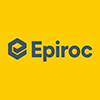
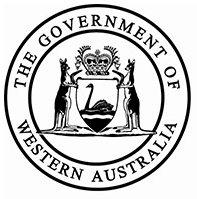
How Would You Like to Qualify as a Business Officer?
Online
Our online Diploma of Business (Procurement) course is a great choice for learners wanting the flexibility to learn at their own pace in the comfort of their own space.
Prior Experience
If you've been working in projects you may qualify for Recognition of Prior Learning (RPL). This is a way for experienced people to fast track the qualification.
Looking for customised Corporate Training?
Scope is experienced at designing custom learning experiences and has partnered with businesses of all shapes and sizes across a range industries.
A Diploma of Business (Procurement) can be customised and delivered to your organisation.
This will include integrating your values, policies, processes, frameworks as well using examples based on your industry.

Companies we’ve worked with include

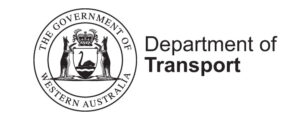
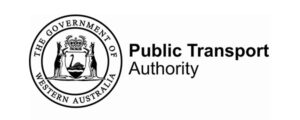
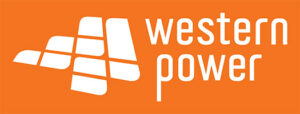
Diploma of Business (Procurement) Units
CORE UNITS
This unit describes the skills and knowledge required to develop critical and creative thinking skills in others within a workplace context.
The unit applies to individuals who are developing and coaching others, for whom critical thinking skills (including analysis, synthesis, and evaluation) are an important part of their job roles. This unit applies to individuals who are typically responsible for leading teams.
No licensing, legislative or certification requirements apply to this unit at the time of publication.
This unit describes the skills and knowledge required to undertake financial management in an organisation or work area. It includes planning and implementing financial management approaches and supporting and evaluating effectiveness of financial management processes.
The unit applies to managers in a wide range of organisations and sectors who have responsibility for the effective use of financial resources within work teams. They are responsible for ensuring that financial resources are managed in line with the financial objectives of the team and organisation.
No licensing, legislative or certification requirements apply to this unit at the time of publication.
This unit describes the skills and knowledge required to manage resources according to planned business strategies. It includes analysing resource requirements, developing resource plans, allocating resources, and reviewing and reporting on resource usage.
The unit applies to individuals with a role in allocating and monitoring the use of physical and/or human resources to meet defined business objectives.
No licensing, legislative or certification requirements apply to this unit at the time of publication.
This unit describes the skills and knowledge required to develop and implement workplace sustainability policies and to modify the policy to suit changed circumstances.
The unit applies to individuals with managerial responsibilities who undertake work developing approaches to create, monitor and improve strategies and policies within workplaces. These individuals also engage with a range of relevant stakeholders and specialists.
‘Sustainability’ in this unit refers to a broad approach that focuses on the minimisation of an organisation’s social, economic and environmental impact, as well as proactive value creation in these areas.
No licensing, legislative or certification requirements apply to this unit at the time of publication.
This unit describes the skills and knowledge required to lead communication in the workplace within any industry.
This unit has a specific focus on the communication skills required for team leaders with responsibility for other workers.
No licensing, legislative or certification requirements apply to this unit at the time of publication.
ELECTIVE UNITS
This unit describes the skills and knowledge required to undertake a minor project or a section of a larger project. It covers developing a project plan, administering and monitoring the project, finalising the project and reviewing the project to identify lessons learned for application to future projects.
The unit applies to individuals who play a significant role in ensuring a project meets timelines, quality standards, budgetary limits and other requirements set for the project.
No licensing, legislative or certification requirements apply to this unit at the time of publication.
This unit describes the skills and knowledge required to employ ethical procurement processes and policies to identify suppliers’ contribution to improve the ethics of that specific supply chain, such as waste, water, emissions, materials, service and innovation.
It applies to individuals who manage the ethical procurement of goods and/ or services from a variety of sources. While an individual may work closely with other staff members in the organisation, they have individual responsibility and autonomy to identify ethical procurement risks, develop management programmes and evaluate suppliers against organisation ethical procurement policies and procedures.
No licensing, legislative, regulatory or certification requirements apply to this unit at the time of publication.
This unit describes the skills and knowledge required to undertake procurement in projects.
The unit applies to individuals responsible for managing and leading a project in an organisation, business, or as a consultant.
No licensing, legislative, regulatory or certification requirements apply to this unit at the time of publication.
This unit describes the skills and knowledge required to develop, implement and evaluate an organisation’s procurement strategies.
It applies to individuals focussing on the development, design and implementation of strategies to support the procurement of goods and/ or services. While an individual may work closely with other staff members in the organisation, they have individual responsibility and autonomy to develop, communicate and implement organisational procurement strategies.
No licensing, legislative, regulatory or certification requirements apply to this unit at the time of publication.
This unit describes the skills and knowledge required to manage relationships with suppliers of larger or multiple smaller procurement activities, where the relationship is of some significance to the organisation. It covers managing procurement agreements, resolving disagreements with suppliers, finalising agreements, and reviewing the performance of suppliers.
It applies to individuals who manage relationships with an organisation’s suppliers, and is typically undertaken by a senior procurement officer or procurement manager.
No licensing, legislative, regulatory or certification requirements apply to this unit at the time of publication.
This unit describes the skills required to implement strategies that ensure effective contract performance. It includes managing the business relationship, performance of the contract, and contract issues; and implementing a communication strategy.
This unit applies to those working in roles involved in procurement contract maintenance.
The skills and knowledge described in this unit must be applied within the legislative, regulatory and policy environment in which they are carried out. Organisational policies and procedures must be consulted and adhered to.
Those undertaking this unit would work independently seeking advice as required, performing complex tasks in a range of familiar and unfamiliar contexts.
No licensing, legislative or certification requirements apply to unit at the time of publication.
This unit describes the skills required to finalise processes for contracts. It includes completing contracts and implementing a contract review strategy.
This unit applies to those working as public sector staff with responsibility for finalising contracts.
The skills and knowledge described in this unit must be applied within the legislative, regulatory and policy environment in which they are carried out. Organisational policies and procedures must be consulted and adhered to
Those undertaking this unit would work autonomously while performing complex tasks, in familiar contexts.
No licensing, legislative or certification requirements apply to unit at the time of publication.
Looking for different units? Contact our team and we can discuss what other units may be available as well as if your previous experience can reduce the course requirements.

How long will it take to complete?
The great thing with competency based training is that completion of a course is based on your ability to demonstrate your ability to perform to industry standard. This allows you to complete at your own pace.
There are no exams in the course, it is very practical and based upon things you’re going to face in a project environment.
We provide students with the ability to complete the Diploma of Business (Procurement) over a one year period; however we find that the average time is between 3 to 6 months. During that time there is a large variance in the amount of time each student spends working on the qualification.
Give us a call, email, use the chat or whatever is easiest and we can give you an estimate based on your situation as well as how your experience may help you complete faster.
What are the entry requirements?
There are no entry requirements into the Diploma of Business (procurement). If you have a computer and an internet connection you’re set.
Having said that we believe that learning is most valuable when applied. So it’s best to have a workplace or previous which you can use to apply your learning.
Our model isn’t geared for those coming straight out of school and find that most of our students come from one of two paths.
Ideally participants should hold a Certificate IV in Business (Procurement). However there are a number of other accepted qualifications from industry areas such as Business, Health and Safety etc. Many participants of this program are tertiary qualified professionals looking to migrate into a project role.
Many students enter this qualification without holding an existing qualifications. As the programs are designed based upon the work environment, experience within that environment is an acceptable point of entry. In regards to the Diploma of Business (Procurement), this may include but is not limited to experience within a project environment, or another technical field, this may be either as a team member, supervisor or leading hand.


What Jobs Can I Get with a Diploma of Business (Procurement)?
The Diploma of Business (Procurement) conveys to employers that the holder has practically demonstrated the skills and knowledge to work effectively as a Team Leader as well as plan and implement workloads for team members to satisfy the goals of the organisation/enterprise. Furthermore a qualification from Scope Training advocates that the learner has demonstrated the ability to apply these skills in a work context, reassuring employers of job-readiness.
Job Roles include: Office Manager, Business Development Manager, Business Administrator

